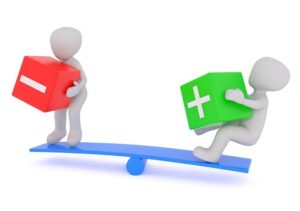Considering Refinancing Your Home?
Are you thinking about refinancing your home? Refinancing your mortgage can come with benefits, whether you want to obtain a lower interest rate on your mortgage or would like to alter the terms of your loan. But before you begin the refinancing process, it’s important that you fully understand what this process entails and when you should consider refinancing your property.
What Does It Mean to Refinance Your Home?

What does refinancing due to my monthly payments?
Refinancing your home essentially means taking out a new mortgage on your home with different terms than your existing loan. When you refinance your mortgage, you take out a new loan that will pay off any of the remaining balance on your existing loan. Most homeowners refinance their home to get a lower interest rate, which in turn means lower monthly payments. But some homeowners refinance to get a shorter loan period (15 year vs 30 year note).
When you want to refinance your mortgage, a lender will help you identify if you’re able to qualify for a mortgage with better terms than your current loan. Qualifications you’re required to meet are similar to the necessary qualifications for a standard mortgage. The various factors lenders consider before they approve your application include:
- Employment and income history
- Debt obligations you currently have
- Current value of your home
- The amount of equity you have in your home
- Credit score and history
- Current loan payment history
Shopping when refinancing a mortgage is very similar to the experience that occurs when shopping for a standard mortgage. You’ll want to compare the terms and interest rates of each loan to determine which option is best for you. Compare the offers with your current loan terms.
In the event that you have missed a few payments on your existing mortgage or have a low credit score, you may find it difficult to be approved for a mortgage refinance. The same is true if you don’t have enough income to cover the new monthly payment. If you meet all of the necessary qualifications, you should be provided with an offer by the lender, which you can then compare with any other offers that you’ve received.
When Should You Refinance Your Home?
To identify if refinancing is right for you, you should first ask yourself if you will be able to save by refinancing. Refinancing is typically used to obtain a reduced interest rate. This serves to lower your monthly mortgage payment and lessen the amount of money you pay on the mortgage in the long run. However, if you refinance to shorten the term of your loan from 30 years to 15 years, your monthly payments will likely be higher.
You should also ask yourself how long you’ll be keeping your home. If you believe that you won’t be selling your home for at least several years, refinancing the property may be the right move. On the other hand, you shouldn’t think about refinancing if you’re going to be selling within the next year.
Many homeowners choose to refinance their home because their credit score has improved since they first purchased the property. With better credit, it’s possible that you will be able to qualify for a new mortgage loan that comes with better terms than your existing loan. But it’s important to understand that not every home is able to qualify for a refinance. Along with your income levels and credit score, the total amount of equity that you currently have in your home plays a factor, which means that you likely won’t be able to refinance if your equity is too low. Your home must be worth more than the total value of the loan.
 If your goal is to cash out the remaining equity in your home to provide yourself with more spending money, this would likely be a poor decision. On the other hand, it may be a wise to cash out the equity in order to renovate a portion of your home or improve your retirement savings.
If your goal is to cash out the remaining equity in your home to provide yourself with more spending money, this would likely be a poor decision. On the other hand, it may be a wise to cash out the equity in order to renovate a portion of your home or improve your retirement savings.
If you’re still unsure about whether or not it’s a good idea for you to refinance, be confident you will benefit from obtaining a new home mortgage in these three situations:
- The interest rates for your new mortgage are at least around one percent lower than your current rate
- You currently plan on remaining in your home for at least another five years
- Shortening the length of your loan
What Are the Pros of Mortgage Refinancing?
While it might seem like refinancing a home has no drawbacks to it, there are pros and cons. Be aware of these issues before moving forward with this financial transaction.
The most obvious benefit of refinancing is getting a lower interest rate than your current one. This could save you a substantial sum of money. If your current monthly mortgage payment is $1,000+, refinancing may allow you to decrease your payments by more than $100. A lower interest rate can free up some cash that you can put into your savings account or use for other expenses.
Another fantastic benefit of refinancing your home is that you may be able to change the term of the loan. If you currently have a 30-year term, you may be able to change to a 15-year term. While your monthly payments would be higher, you could pay your home off in a shorter period of time. Moving to a 15-year term also decreases your monthly interest payments.
The final benefit of refinancing your property is being able to use cash from the equity that you’ve built up. Equity refers to the total value of the property minus any liens currently attached to it. The most prominent lien is usually your mortgage loan. Let’s say that you still owe $100,000 on a $200,000 mortgage. In the event that your home is reappraised with a new value of $233,000, you would have $133,000 in equity. Having access to that equity can be very beneficial if ever unexpected costs and expenses arise.
What Are the Cons of Refinancing?

Weighing the Pros and Cons of Refinancing
While refinancing your mortgage might seem like an option that has no downsides, it’s important to understand that doing so is not always the right decision. Making this decision depends on several different factors.
The main issue with refinancing your home is that the savings you receive could be minimal. It’s not guaranteed that your payment will be much lower. The savings you receive might not be high enough to warrant applying for a refinancing loan. The amortization table starts at square one again, with mortgage payments contributing mostly to interest and very little towards principal. This means that in the first few years of your loan, most of your monthly payment is NOT going towards paying off your home.
Because of the many fees that come with refinancing a property, it’s important that your savings are much higher than these fees. The costs associated with refinancing can amount to thousands of dollars. These expenses include origination fees, application fees, and fees for having the home appraised. An appraisal for a single-family home can cost anywhere from $450 and up. If your new mortgage payment is only $50 lower, it may take a considerable amount of time to benefit from a refinanced mortgage. Before you decide to refinance a home, it’s important that you weigh the costs against the benefits.
Keep in mind that there are also prepayment penalties that you should be on the lookout for. Prepayment penalties may cause issues when refinancing a property. Check with your current lender.
Many homeowners don’t remember the substantial amount of time it takes applying for and reviewing loan offers. Stress levels usually increase with time constraints and confusing loan terminology. If your time is already limited, plan your time allocation accordingly.
Refinancing a home may seem quite complicated and overwhelming. Hopefully this article has removed some of the mystery around it. Refinancing can be a great decision if you want to obtain a shorter term, a lower interest rate, or a reduced monthly payment. On the other hand, refinancing isn’t perfect for every homeowner. Sometimes, selling and buying a more price suitable home are the answer. Weigh the pros and cons before you make a final decision. And as always, feel free to contact us at Baker Realty if you have any questions!

